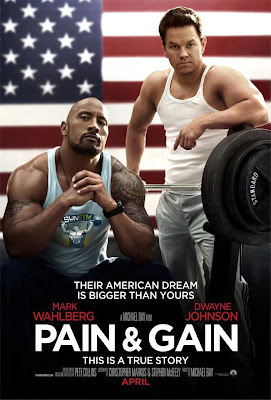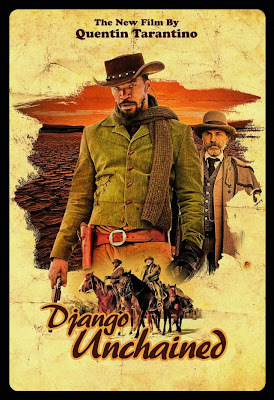‘Dear White People,’ You Cut Deep (Movie Review)
Dear White People:
4 ½ out of 5
Mitch:
It’s like Oprah and Spike Lee had some sort of pissed off baby.
I don’t think there is
any real way around me saying that I am of mixed-race and have certain views towards
humor that delves into race. Obviously I
could just not mention this at all, but that seems like more of a disservice,
when it comes to a review that focuses on a film satirizing racial politics on
a college campus. While my experiences
do not reflect the events that take place in Dear White People, I did have a level of understanding of the
circumstances and walked away both very satisfied and somewhat angered, given
how the film works in its provocation.
The best way to look at Dear White
People though, is as an examination of identity. It leans on certain points for the sake of a
particular story, but this is a film about understanding one’s self versus what
the masses understand. It also happens
to feature some very fine filmmaking on display for a directorial debut.
Given that this is the
debut theatrical film from writer/director Justin Simien, it makes me wonder
who else could have made a film like this, aside from the obvious answer: Spike
Lee (from perhaps a different era). From
what I have learned and can plainly see, Simien is a well-informed individual,
with lots of talent that stems from his education and cinematic influences that
clearly extend beyond just Lee and into territory further back, with filmmakers
such as Woody Allen, Fellini, Hitchcock, and Altman (who is name-checked in
this film) coming to mind. I say this
because Dear White People is sure to
bring up a certain understanding from people that have not seen it based on
just the title, the brief commercials, and other such advertising for the
film. Regardless of whether I liked it
or hated it, I know that I was brought in because of what I thought it would
be. It only helps that I appreciated the
film for being much more than a satire with a lot of clever moments, as it is
really a cinematic drama that happens to be digging into some rich material.
Really, if you put
aside the notion of racial politics revolving around black culture on an Ivy
League campus, Dear White People is
just a great college film in the same vain as something like The Social Network or even something
much much broader, like Revenge of the
Nerds. Dear White People may not be as emotionally cold as David Fincher’s
film or at all as broad as the raunchy 80s-era film, but it does stand to
reason that this film could be looked at from a point-of-view that does not
focus as much on the race angle, as much as it does at living on a college
campus for a short while. Essentially,
why I am happy to mention such comparisons is due to how the film feels so
sneaky in what it tries to do. Simien has
made a feature with a surface layer of satire that does know how to dive into a
deeper understanding of the topic it presents and does so, but at the end of
the day, still relies on a formula fitting for a film about a group of college
students. This again makes a good case
as for why he has proven to be more than just someone bringing up certain
topics in his debut feature, because he is also doing fine work as a filmmaker
working in the bounds of his visual medium, as opposed to putting together an
assemblage of ideas, without much form.
Keeping all of that in
mind, Dear White People focuses on a
number of key characters. Tessa Thompson
is Samantha White, a mixed-race radical, looking to stir things up regarding
the racial politics on campus. We begin
the film with her, as we listen to her radio broadcast talking down to white culture
in humorous fashion. What turns Samantha
into more than just an idea of a character and into an actual character is what
we learn about her and what Thompson brings to the role. Understanding her issues is one thing, but
realizing the emotional distress she has gone through makes Samantha far more
understandable, with Thompson doing fine work in bringing out the layers of
this character. There is also Tyler
James Williams as Lionel Higgins, a shy, gay, black student, who has had
trouble in connecting to anyone, which includes other black students. Samantha may be the lead character, but
Lionel is closer to being the character we are truly following throughout the
film. He somewhat fills in as the
unlikely hero character, but he is more of a character that fits in the middle
of all the drama that unfolds in this film.
Other characters play
big roles in this film as well, including Teyonah Parris as Coco, a smart girl
unfortunately more focused on becoming famous than anything else; Brandon P
Bell as Troy, a leader in training, under control of his father, the dean of
students, played by Dennis Haysbert.
There is also Justin Dobies as Gabe, a white TA, with points to counter
Samantha’s arguments, despite the mutual affection the two have for one another. The scenes these two characters have together
represent the ways in which Dear White
People actually does do a fine job of balancing the satirical elements with
fine human drama, which is much appreciated.
I do not want to keep going back to Spike Lee, but just consider how
much more effective Do The Right Thing
is because of the down time we spend with Mookie or the characters played by
Ruby Dee, Ossie Davis, or even Rosie Perez, before jumping back into the heated
topics that drive the plot. Dear White People similar provides this
level of entertainment, which overall helps the film.
The core of this story involves
an event put on by some of the white students on campus. This event has a theme that enrages the black
students, leading to news-worthy coverage of the aftermath. The film takes place a few weeks before these
events, allowing us to build up to what takes place. The characters I have mentioned already are
at the center of this, along with Kurt (Kyle Gallner), the spoiled son of the
college President. Gallner’s performance
would be over-the-top if he was not based on people who very much exist, as
evidenced by a montage of photos in the end credits, displaying similarly
themed events to the one featured in this film.
With that said, Gallner does make a strong impression, which serves the
film very well. It is not so much about
how awful this character is compared to other though, as Dear White People is more of an examination of college life, as I
previously stated. Obviously this film
uses satire as a means to depict how we see things in this film, but whether or
not this film is about redeeming any of its characters, it does really boil
down to finding identity during a complicated time in one’s life.
There is plenty more to
discuss about this film, which is part of why I am very pleased Dear White People has been made and has
received attention. As it stands though,
Justin Simien gets a lot of credit from me for making a film that does tackle
interesting ideas and makes attempts to hit targets that sit within our current
Obama era, while also making a film that holds together as a fine piece of
filmmaking. While it does fit under the
guise of a comedy, I would not even say the humor is Dear White People’s strong suit, as the film’s pacing is far more
fitting of a drama, matched with some punchlines to add some levity to what we
are watching. Keeping that in mind, in
an age where standard comedies end up looking fairly plain, Simien puts a stamp
on this film that allows for appreciation of the style on display. There is a very good-looking film here. It is a film that has a topic on its mind and
uses sharp writing and wit to provoke a response, but is still a well-made
film. Putting all complications aside, I
said that I am of mixed-race when I started and while this film got a certain
response out of me in my reaction to its ideas, I am very fine with examining
it, while also recommending it for trying to mean something and doing its best
to be a bold effort.
Reggie:
Did somebody say mulatto?












Comments
Post a Comment